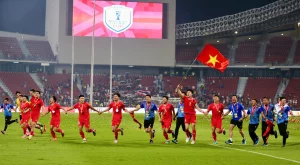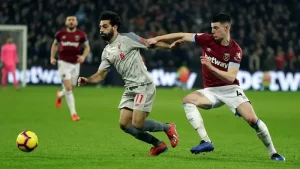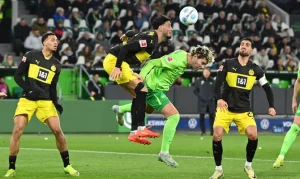Patrick Kluivert’s Alleged Involvement In Football Gambling
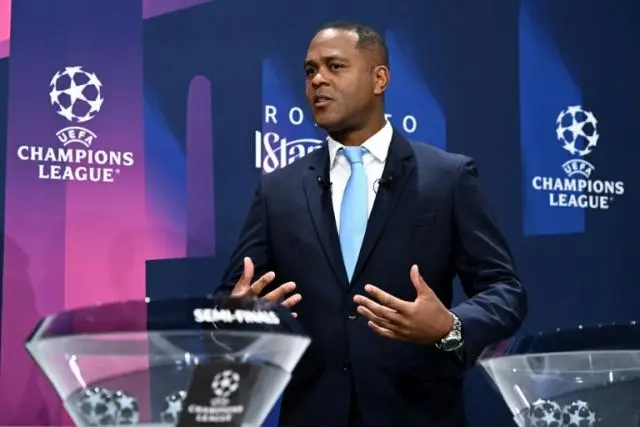
Patrick Kluivert’s Alleged Involvement In Football Gambling – Patrick Kluivert’s past involvement in soccer gambling has resurfaced on social media after he was appointed as the coach of the Indonesian national team to replace Shin Tae-yong.
Patrick Kluivert’s Alleged Involvement In Football Gambling
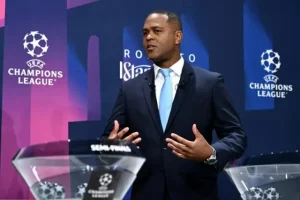
islschedule – The Indonesian Football Association (PSSI) is faced with the challenge of addressing public concerns about soccer gambling as attention to Kluivert’s track record increases, as revealed by a number of observers.
Netizens have cited reports about the former Ajax and Barcelona star in 2017. As reported by Dutch newspaper De Volkskrant, which was later reported by Bleacher Report and Marca, Kluivert allegedly owed 1 million euros (around Rp16.7 billion) to a criminal group involved in match-fixing.
Kluivert has denied any involvement in the illegal activity, although he was called as a witness by authorities. Kluivert’s lawyer, Gerard Spong, emphasized that his client was the victim in this situation.
PSSI has emphasized that Kluivert was not involved in match-fixing.
“If he is involved in match-fixing practices, it is clear that he will be blacklisted in Europe,” said PSSI Exco member Arya Sinulingga, as reported by Kompas.com. “If so, there is no way we will call him.”
Kluivert is scheduled to arrive in Indonesia on Saturday, January 11, and will be officially introduced to the public the following day. He will be assisted by two assistant coaches from the Netherlands, Alex Pastoor and Denny Landzaat.
Read Also : Vietnam Ends Thailand’s Domination Wins 2024 AFF Cup
Kluivert will make his debut as coach of the Indonesian national team when the Garuda squad visits the Sydney Football Stadium on March 20 to face Australia. On March 25, Indonesia will host Bahrain at the Gelora Bung Karno Stadium, Jakarta, in order to continue the third round of the 2026 World Cup Qualifiers Group C of the Asian zone.
Football observer Eko Noer Kristiyanto stated that the General Chair of PSSI Erick Thohir now has the responsibility to convince the public regarding Kluivert’s appointment. Eko, who is also a sports law expert, highlighted the issue of integrity in the selection of Kluivert, which he said was “inappropriate”.
“Moreover, Mr Erick [Thohir] must be aware that our country is facing a serious online gambling problem, while Patrick [Kluivert] has a track record related to gambling,” he told BBC News Indonesia on January 9. “On the one hand, we are trying to eradicate match-fixing, but on the other hand, why choose an individual like this?”
However, Eko acknowledged that Kluivert’s appointment was PSSI’s decision. He argued that the public might “forgive or forget” Kluivert’s track record regarding integrity, if the former Curacao national team coach succeeds in leading Indonesia to qualify for the World Cup.
“What is clear is that Patrick joined the national team without a bad record, unless the match-fixing [case] involves Indonesia,” he said. “In the end, time will tell. The responsibility lies with PSSI and Erick Thohir, not Patrick Kluivert.”
In line with this, football observer Kesit B. Handoyo admitted that Patrick Kluivert’s negative track record could disrupt “the comfort of the Indonesian public”, especially after he was appointed as the national team coach.
“In my opinion, we don’t need to look back,” Kesit said via telephone. He emphasized that the most important thing is how PSSI can anticipate if unfavorable issues arise related to Kluivert’s track record, and suggested that the situation continue to be monitored, even if necessary involving all related parties.
In addition, Kesit said that the Anti-Mafia Task Force needs to continue to carry out its function so that the situation within the national team remains conducive. He reminded, “Don’t let unpleasant issues arise related to problems outside the field.”
“The most important thing right now is how Indonesia focuses on completing the competition in the Asian zone for the World Cup qualifiers, so that the hopes and desires to be able to qualify are even greater,” he said.
Meanwhile, Ronny Pangemanan, another football observer, expressed optimism about the situation. “Looking at the events in the last year or two, I reject the negative view. Mr. Erick as the General Chair of PSSI is certainly not stupid; he must have checked someone’s track record first,” he said.
On the other hand, Unggul Indra, President of the La Grande Indonesia National Team Supporters Association, stated that “like it or not, like it or not” the baton of coaching the Indonesian national team is now in Kluivert’s hands. “Hopefully this will be a proving ground for the federation that this is Kluivert’s past
The Role of Eradicating Football Gambling Mafia in Indonesia
The case of football gambling mafia in Indonesia has attracted the attention of a number of academics. Judge Ranto Sabungan Silalahi in his paper published in the *Jurnal Indonesia Law Review* of the University of Indonesia in 2020 highlighted the element of corruption in match-fixing in Indonesia. He wrote, “Indonesia can take an example from Australia in its efforts to eradicate match-fixing in football.” Ranto added that Australia has classified match-fixing as a form of corruption in the field of sport, where the perpetrators are subject to strict criminal sanctions by law enforcement officers, not just disciplinary or ethical sanctions.
Read Also : Koktail Terbaik yang Dihasilkan dengan Campari
Meanwhile, an expert from the University of Indonesia, Celine Tjandra, in her paper on football gambling in Indonesia published in 2024 revealed that detecting illegal gambling practices is complex. This is due to the various forms and methods of playing football gambling, as well as gambling practices that are carried out secretly and through illegal channels that are difficult to track.
Sports observer from Sebelas Maret University Surakarta, Rumi Iqbal Doewes, in his paper on match fixing in Indonesia published in 2020, quoted an anonymous confession from a soccer player who claimed to have been offered IDR 50 million to deliberately lose to the opposing team.
Furthermore, soccer law observer, Eko Noer Kristiyanto, stated that Indonesia is still far from being “clean” from the soccer gambling mafia. Eko even said that the practice of match fixing or match fixing is still a problem that “shadows the competition” in Indonesia. He reminded the public of the match fixing scandal that occurred in 2018, which confirmed the rampant gambling mafia in this popular sport. However, Eko highlighted that the practice of match fixing also shadows countries that are more advanced than Indonesia.
Eko proposed that in order to eradicate match fixing seriously, a permanent institution is needed that specifically handles crimes in the field of sports (sports crime). According to him, match fixing is only a small part of a larger problem, which includes the issue of money laundering in sports. He argued that the Anti-Mafia Task Force formed in 2018 was not sufficient to handle match-fixing in Indonesia, because the institution was still ad hoc.
In his view, the quality of police personnel in the Anti-Mafia Task Force still requires support from external experts to understand the technical elements in football matches. Eko compared the handling of match-fixing cases by Singaporean authorities at the 2015 SEA Games. He noted that the Singapore police at that time succeeded in uncovering match-fixing practices because their members had been trained to identify suspicious situations that were potentially related to match-fixing.
“In addition to having investigative capabilities, the Singapore police also understand the technical aspects of sports related to match-fixing. For example, when a player receives a ball that should have been thrown and suddenly passes it backwards, this situation is still difficult to recognize in Indonesia due to limited human resources,” Eko explained.
He also noted that the issue of sports crime may not have attracted attention compared to terrorism or drug issues, so even if police members have received relevant training, this knowledge is not fully explored.
BBC News Indonesia has attempted to contact the PSSI and the Anti-Mafia Task Force for further information in the context of this article. However, until now, no response has been received from the relevant parties.

